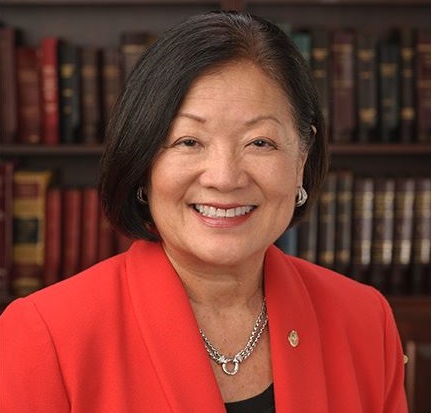March 5, 2020
Bill establishes a formal process for Korean Americans to participate in reunions with their families in North Korea
WASHINGTON, D.C. – Today, Senator Mazie K. Hirono (D-Hawaii) and Senator Dan Sullivan (R-Alaska) introduced S.3395, the bipartisan Korean War Divided Families Reunification Act, legislation directing the U.S. Secretary of State to prioritize helping divided Korean American families reunite with family members in North Korea.Since the signing of the Korean War Armistice Agreement on July 27, 1953, there has been little to no contact between Korean Americans and family members who remain in North Korea. Since 1985, however, North Korea and South Korea have held twenty face-to-face reunions and multiple video link reunions. These reunions have allowed upwards of 22,000 Koreans with the opportunity to reunite briefly with their loved ones. The last reunion took place in August 2018. This legislation aims to include Korean Americans in future reunions.
“Reuniting Korean Americans who were separated from their loved ones in North Korea seven decades ago is an urgent moral imperative,” Senator Hirono said. “This important legislation calls on the State Department to advocate for the inclusion of Korean Americans in reunions between divided families in North and South Korea. The reality is most divided family members are in their 80s and 90s so we must act swiftly to give these families the opportunity to reconnect.”
“An enduring tragedy of the Korean War is the thousands of families whose ties, like the peninsula, were severed along the thirty-eighth parallel,” said Senator Sullivan. “Fathers, mothers, grandparents, aunts, uncles, brothers and sisters awoke one day to the reality that they would likely never see or hear from their families again, all due to an impenetrable border and hostilities between the North and South. Given the changing dynamics in this bilateral relationship, I believe there is new hope for these family members to connect and possibly reunite, if even for a short time. I’m glad to join Senator Hirono in working to secure a clear process for these families, including many in Alaska, to finally connect with their long-lost loved ones after decades of separation.”
“We deeply appreciate Senator Hirono and Senator Sullivan for their compassion, comity, and collaboration to bring together families torn apart by the Korean War,” said Wonseok Song, Executive Director of the Korean American Grassroots Conference (KAGC), the largest nationwide network of Korean American voters. “It has been over 70 years since the last time Korean Americans were able to contact, let alone meet, their family members left behind in North Korea. It is long overdue that a humanitarian measure with a concrete plan like a family reunion is prioritized in our policy toward the Korean peninsula. The Korean War Divided Families
Reunification Act is a monumental progress, not only because it is the first time the Senate took action on this matter since 2015 — but more importantly because, unlike resolutions offered in the past in both chambers, this is the first bill ever to propose a substantial action plan. We thank all members of Congress who have supported this cause over the years, and especially our allies and community members across the United States who have continued to raise awareness of this predicament from the grassroots to Capitol Hill.”
Paul Lee, President of Divided Families USA, a partner organization of KAGC said, “We applaud Senator Hirono for elevating the issue of Korean American divided families, who have been separated from their loved ones in North Korea for seven decades, through this piece of legislation. This is a historic step forward in healing the scars from the Korean War and prioritizing the universal human right of family reunion. These elderly Americans of Korean descent are a direct human link between the United States and North Korea that deserve closure before it is too late.”
Representative Grace Meng (D-N.Y.) introduced companion legislation in the House.
###
